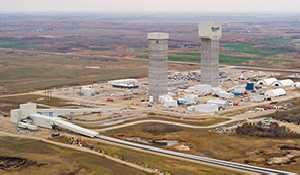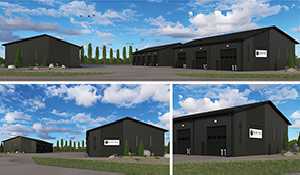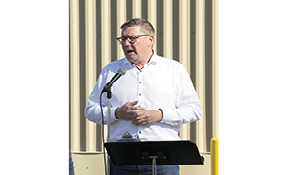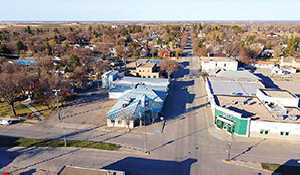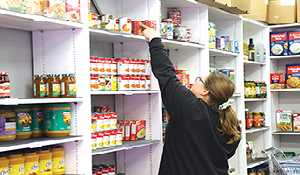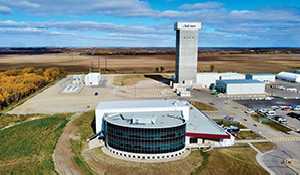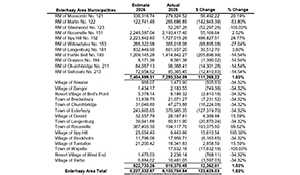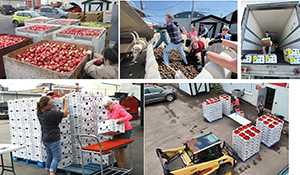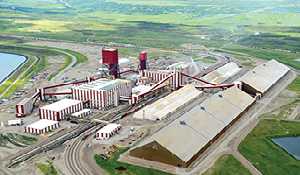Federal carbon tax is now in effect
In both Saskatchewan and Manitoba
April 2, 2019, 1:56 am
Kevin Weedmark


As of today, Saskatchewan and Manitoba residents (along with those in Ontario and New Brunswick) will be paying the federal carbon tax. Gas prices were expected to rise five cents a litre at the pump today, and SaskEnergy and SaskPower are adding the tax to their bills as of today.
SaskEnergy’s residential customers will see charges increase by an average $54 per year on average until 2022, when the carbon price is expected to reach $50 per tonne of emissions. SaskPower estimates the cost for consumers will rise to $63 per year by then.
Manitoba Hydro customers will not see the same impact because the Crown corporation produces 97 per cent of its electricity from renewable hydro power.
Ottawa has promised to return all the funds collected in rebates to individuals, businesses, local governments and other organizations. The rebates for individuals are already flowing as tax returns get filed, but the promised program to help small and medium businesses hasn’t been finalized.
“These are rebates of some nature yet to be determined,” said Dan Kelly, president of the Canadian Federation of Independent Business.
“There is a dearth of information out there about how this is going to work,” he said. “There’s a whole bunch of technical questions and we’ve gone to the feds with these questions and they’ve come up short in terms of answers.”
The tax is being applied starting at $20 per tonne of greenhouse gas emissions produced, rising to $50 by 2022. It applies to 21 different input fuels and combustible materials, including gasoline, diesel, aviation fuel, tires and asphalt shingles.
The tax will generally be applied early in the supply chain by a fuel distributor, and ultimately be built into the price paid by the end user. It will be harder to gauge the impact on prices of consumer goods that will cost more to produce or transport as businesses pay the tax on their energy inputs.
Kelly said businesses expect to shoulder the weight of about 50 per cent of the burden of the carbon price, but are only getting seven per cent of the rebates—an imbalance he called “grossly inadequate.”
The assumption that businesses will be able to just increase prices to offset their costs is wrong, he added.
He said that a majority of CFIB members say in order to remain competitive, they won’t be able to pass along the burden to consumers.
Ottawa is giving individuals cash rebates averaging between $248 and $598 per household, depending on sources and energy use.
Environment Minister Catherine McKenna has said the final details of the business rebates were still being worked out.
Conservative environment critic Ed Fast said small businesses are “going to suffer the most” from the carbon price and are getting the least help.
The Conservatives have promised to do away with the carbon price if they win the next federal election, scheduled for October.
Tax top of mind
Yorkton-Melville MP Cathay Wagantall, whose riding includes the Esterhazy, Tantallon and Spy Hill areas, says the carbon tax is top of mind for constituents she speaks with.
“I’ve just been in Canora, Kelvington, and Hudson Bay, in a number of schools, and the carbon tax comes up automatically as part of our conversations,” she said in an interview Thursday.
“People are very pleased that our provincial government is standing up against it, but their concern is that the federal government is in need of money and is taxing us in areas where people feel they shouldn’t be taxing us.
“People are telling me they think it will just increase the cost of living and the cost of doing business. They don’t feel that’s necessary because people in Saskatchewan are already responsible with the environment, without being penalized with a tax.”
She said imposing a carbon tax on rural residents is unfair because people need to travel and need to heat their homes.
“People have no choice but to fill their tank,” said Wagantall. “Of course it’s not just impacting gas, it’s also propane and diesel and other costs that are going to go up as well, and it is going to impact businesses with the cost of freighting everything going up, so the cost will increase of producing everything.
“People understand that there is no reason to charge this tax, they are also charging GST on top of the carbon tax, for a government that is spending beyond their means.”
She said she is unhappy with the way the carbon tax was implemented.
“I’m very frustrated,” she said. “When they started speaking with the ministers of the environment across the nation, they talked about four or five options for them to implement ways of making a difference for the environment. In Saskatchewan, we like to use methods that are incentives, and encourage innovation instead of a tax. When they got to the final meeting, they were told they had only two choices—a tax, or cap and trade. That was very frustrating to them.”
She said she brought the case of a local constituent up in the House of Commons.
“I had a contractor in the area say we want to figure out what this is going to cost us. Everything you bring in to build a home is freighted in and the cost of all the components that go into a home is going to be higher, and the cost of the contractors will be higher, and it will affect the affordability of a home, which is already challenging for a lot of people.
“I brought this up in the House of Commons and the Minister responded to me in Question Period, and brought up the example of a business that she said represents businesses that want to do the right thing and improve the environment. The example she used was Veriform. It’s a metalworking business in Ontario, that introduced so many improvements they reduced their environmental footprint by 80 per cent and in the process of doing that, they saved a million dollars in costs because of the efficiencies. She said this is how we’re going to help small businesses.
“So I’m asking her a question about carbon tax, she’s responding about steps a particular business took, so we checked it out, and the majority of those steps they took were in 2014, under the Harper government, without the threat or penalty of a carbon tax. So I rechallenged her in the House of Commons saying this is your example, and it’s a perfect example of why Canadians don’t need a carbon tax to incentivize them to do good business and do things that will actually save them money. Most people have done a lot already, we have put in better windows, we better insulate our homes, we add vapor barriers. We do things to save money and help the environment. We see that in agriculture as well.”
She said the Conservative commitment to eliminate the carbon tax if they form government this fall has been made clear.
“Andrew Scheer has made it completely clear that we will scrap the carbon tax,” she said.
“We haven’t released our platform and we have made it clear we will not be releasing a lot of the details until closer to the election, but that being said, we are very concerned about the environment and we choose to take a proactive approach with incentives and encouraging businesses and individuals to do things that will mean they have a better bottom line and are more environmentally efficient. That’s the approach we choose to take, rather than tax people to make a change to how they live.”
She said the carbon tax could grow exponentially.
“Obviously this tax is at the beginning stages,” she said. “The United Nations has a document out that says very clearly that if you want to change the culture of a nation in the way they interact with the environment you need a carbon tax of $5,500 a tonne.
“The children in the classes I was in today said for us to do a lot of things in our small town, to play hockey, to go to the city, we have to use carbon. We have to heat our homes—we live in a cold environment. The children understand this is an unfair situation, where you are forcing Canadians who have no choice.”
An anti-carbon tax convoy is planned for Regina this Thursday, April 4, including a convoy through the city and a rally at the Queensbury Centre at noon. Tweet

















